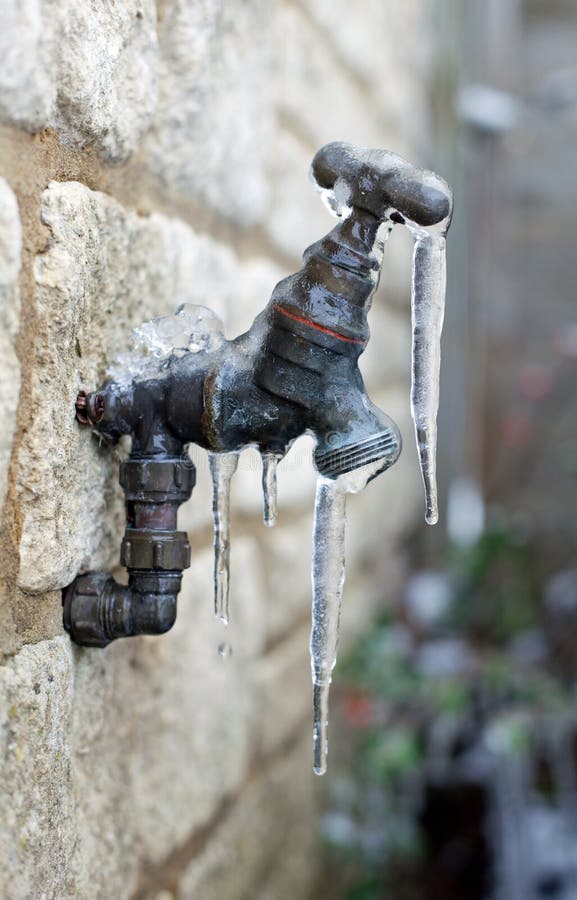Important Tips for Preventing Frozen Pipes in Winter Seasons
Important Tips for Preventing Frozen Pipes in Winter Seasons
Blog Article
Listed here in the next paragraphs you can discover some exceptional additional info in regards to 6 Ways to Prevent Frozen Pipes.

Winter can ruin your plumbing, especially by freezing pipelines. Here's exactly how to avoid it from taking place and what to do if it does.
Introduction
As temperatures decline, the danger of icy pipelines rises, possibly leading to pricey repair services and water damages. Comprehending just how to prevent frozen pipes is essential for home owners in chilly climates.
Recognizing Frozen Pipelines
What causes pipes to freeze?
Pipes freeze when revealed to temperatures below 32 ° F (0 ° C) for extended periods. As water inside the pipelines ices up, it increases, putting pressure on the pipeline walls and possibly triggering them to break.
Dangers and damages
Frozen pipelines can cause supply of water disturbances, residential property damage, and costly repairs. Burst pipelines can flooding homes and cause comprehensive architectural damages.
Signs of Frozen Pipeline
Determining icy pipelines early can stop them from bursting.
How to identify frozen pipelines
Try to find lowered water circulation from taps, uncommon smells or sounds from pipelines, and noticeable frost on revealed pipes.
Prevention Tips
Shielding susceptible pipelines
Cover pipes in insulation sleeves or utilize warmth tape to safeguard them from freezing temperature levels. Concentrate on pipes in unheated or external areas of the home.
Heating methods
Keep interior spaces properly warmed, specifically locations with pipes. Open closet doors to allow warm air to circulate around pipes under sinks.
Securing Outside Plumbing
Yard hose pipes and exterior faucets
Detach and drain pipes yard hose pipes prior to winter season. Install frost-proof faucets or cover outside faucets with protected caps.
What to Do If Your Pipelines Freeze
Immediate activities to take
If you suspect frozen pipelines, keep taps open to relieve pressure as the ice melts. Utilize a hairdryer or towels taken in warm water to thaw pipelines slowly.
Long-Term Solutions
Architectural adjustments
Take into consideration rerouting pipelines away from exterior wall surfaces or unheated locations. Add added insulation to attic rooms, cellars, and crawl spaces.
Upgrading insulation
Invest in top quality insulation for pipelines, attic rooms, and walls. Correct insulation helps maintain regular temperature levels and lowers the risk of frozen pipes.
Final thought
Stopping frozen pipes needs proactive actions and quick actions. By understanding the causes, indicators, and safety nets, home owners can secure their plumbing throughout cold weather.
Helpful Tips to Prevent Frozen Pipes this Winter
UNDERSTANDING THE BASICS: WHY PIPES FREEZE AND WHY IT’S A PROBLEM
Water freezing inside pipes is common during the winter months, but understanding why pipes freeze, and the potential problems it can cause is crucial in preventing such incidents. This section will delve into the basics of why pipes freeze and the associated problems that may arise.
THE SCIENCE BEHIND FROZEN PIPES
When water reaches freezing temperatures, it undergoes a physical transformation and solidifies into ice. This expansion of water as it freezes is the primary reason pipes can burst. As the water inside the pipe freezes, it expands, creating immense pressure on the walls. If the pressure becomes too great, the pipe can crack or rupture, leading to leaks and water damage.
FACTORS THAT CONTRIBUTE TO PIPE FREEZING
Low Temperatures: Extremely cold weather, especially below freezing, increases the risk of pipes freezing. Uninsulated or Poorly Insulated Pipes: Pipes located in unheated areas, such as basements, crawl spaces, or attics, are more prone to freezing. Insufficient insulation or lack of insulation altogether exacerbates the problem. Exterior Wall Exposure: Pipes running along exterior walls are susceptible to freezing as they encounter colder temperatures outside. Lack of Heating or Temperature Regulation: Inadequate heating or inconsistent temperature control in your home can contribute to frozen pipes. PROBLEMS CAUSED BY FROZEN PIPES
- Pipe Bursting: As mentioned earlier, the expansion of water as it freezes can cause pipes to burst, resulting in significant water damage.
- Water Damage: When pipes burst, it can lead to flooding and water damage to your property, including walls, ceilings, flooring, and personal belongings.
- Structural Damage: Prolonged exposure to water from burst pipes can compromise the structural integrity of your home, leading to costly repairs.
- Mold and Mildew Growth: Excess moisture from water damage can create a favorable environment for mold and mildew growth, posing health risks to occupants.
- Disrupted Water Supply: Frozen pipes can also result in a complete or partial loss of water supply until the issue is resolved.
WHY CERTAIN PIPES ARE MORE PRONE TO FREEZING
- Location: Pipes located in unheated or poorly insulated areas, such as basements, crawl spaces, attics, or exterior walls, are at higher risk of freezing.
- Exterior Pipes: Outdoor pipes, such as those used for irrigation or exposed plumbing, are particularly vulnerable to freezing as they are directly exposed to the elements.
- Supply Lines: Pipes that carry water from the main water supply into your home, including the main water line, are critical to protect as freezing in these lines can affect your entire plumbing system.
- Underground Pipes: Pipes buried underground, such as those connected to sprinkler systems or outdoor faucets, can be susceptible to freezing if not properly insulated.
https://busybusy.com/blog/helpful-tips-to-prevent-frozen-pipes-this-winter/

We were guided to that editorial about Preventing and dealing with frozen pipes through a friend on our other web address. Enjoyed our review? Please quickly share it. Help somebody else check it out. I am grateful for being here. Return soon.
Book A Free Estimate Report this page